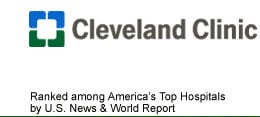| Home > Program Structure > Program Structure: Categorical Program
Program
Structure Categorical Program
First Year |
Second Year | Third Year
| Longitudinal Care Clinic
Each year consists of 13 modules,
each 4 weeks long.
First Year
First-year residents typically
work as part of a health care team which includes a supervising
second or
third-year resident, an attending physician, and
medical students. First-year residents spend the majority
of the year providing primary care for Internal Medicine
patients admitted to one of the geographic medical units.
Residents also gain critical care training in the Medical
Intensive Care Unit, ambulatory care experience in block
outpatient rotations, and acute experience in the Emergency
Department.
Typical PGY-1 Schedule (combination
of 13 modules)
- Cardiology Teaching Service: 1 module
- Consult/Outpatient Clinic including Longitudinal Clinic
Block: 3 modules
- Emergency Department: 0-1 module
- General Medicine Teaching Services (Kimball, Tucker):
1-3 modules
- GI/Hepatology Service (Green): 0-1 module
- Hematology/Oncology Service: 1 module
- Longitudinal Continuity Clinic (1/2 day per week; clinics
for Primary Care
Track residents vary in frequency)
- Medical Intensive Care Unit: 0-1 module
- Neurology (or in GL-2 year): 0-1 module
- Palliative Medicine: 0-1module
- Psychiatry: 0-1 module
- Renal Inpatient Service: 0-1 module
- Vacation: 1 module, includes a float week
back to top
Second Year
Second-year residents act as
supervising residents for three or four modules, including
one module on a
General Medicine Service and one module
as a Night Float. Second-year residents rotate on subspecialty
and general medicine consult services, gaining expertise
in consultative medicine. Junior residents work one module
in either the Coronary or Medical Intensive Care Unit, under
the supervision of a senior resident, subspecialty fellows,
and a full-time intensivist. Second-year residents rotate
through outpatient clinics during two to three modules.
PGY-2 residents also have the opportunity to do a research
module.
Typical PGY-2 Schedule (combination
of 13 modules)
- Consult Services: 3-4 modules
- Coronary Intensive Care Unit: 0-1 module
- Longitudinal Continuity Clinic (1/2 day per week)
- Medical Intensive Care Unit: 0-1 module
- Night Float: 0-1 module
- Neurology (or as a GL-1): 0-1 module
- Outpatient Clinics/Research Elective: 2 modules
- Supervisor Su
bspecialty and/or General Medicine Services:
3-4 modules
- Vacation: 1 module, includes a float week
back to top
Third
Year
Third-year residents act as
supervising residents for five modules, including two to
three modules on General Medicine Services and one module
as a Night Float. Senior residents act as supervisors for
one or two modules in the Medical Intensive Care Unit. Third-year
residents work one module in the Emergency Department. Senior
residents have four to five modules available for electives.
One of these electives may be a research module.
Typical PGY-3 Schedule (combination
of 13 modules)
- Attendance at CCF I.M. Board Review Course in June (1
week)
- Clinics, Consu
lts, Electives or Research: 4-6 modules
- Night Float: 0-1 module
- Longitudinal Continuity Clinic (1/2 day per week)
- Supervisor General Medicines Services: 2-3 modules
- Supervisor GI/Hepatology Service (Green):0-1 module
- Supervisor Medical Intensive Care Unit: 1-2 modules
- Vacation: 1 module, includes a float week
back to top
Longitudinal Continuity
Clinic
All categorical residents are responsible
for ambulatory outpatient clinic half a day per week throughout
the three years of training. Residents have clinic either
at the Cleveland Clinic main campus or at a Cleveland Clinic
Family Health and Surgical Center. These Family Health and
Surgical Centers are located throughout the greater Cleveland
area and make up the Division of Regional Medical Practice.
These Family Health and Surgical Centers provide an excellent
setting in which to experience the delivery of primary care
to the community.
IM Residency Requirements
- Emergency Department - at least 1 month during 3 years,
no more than 3 months
- Gastroenterology Hospital - at least 1 month
- General Medicine Consults - 1 month
- General Internal Medicine Ambulatory (at LCC) - at least 1 month
- Geriatrics
- Infectious Disease Consult - at least 1 month
- Intensive Care Unit - at least 3 months during 3 y
ears,
no more than 6 months
- Critical Intensive Care Unit
- Medical Intensive Care Unit Jr. and Medical Intensive
Care Unit Sr.
- Nephrology (clinic, consult, hospital) - at least 1 month
- Neurology
- Night Float - at least 1 month
- Pulmonary Clinic/Consult - at least 1 month
- Rheumatology - at least 1 month
|



